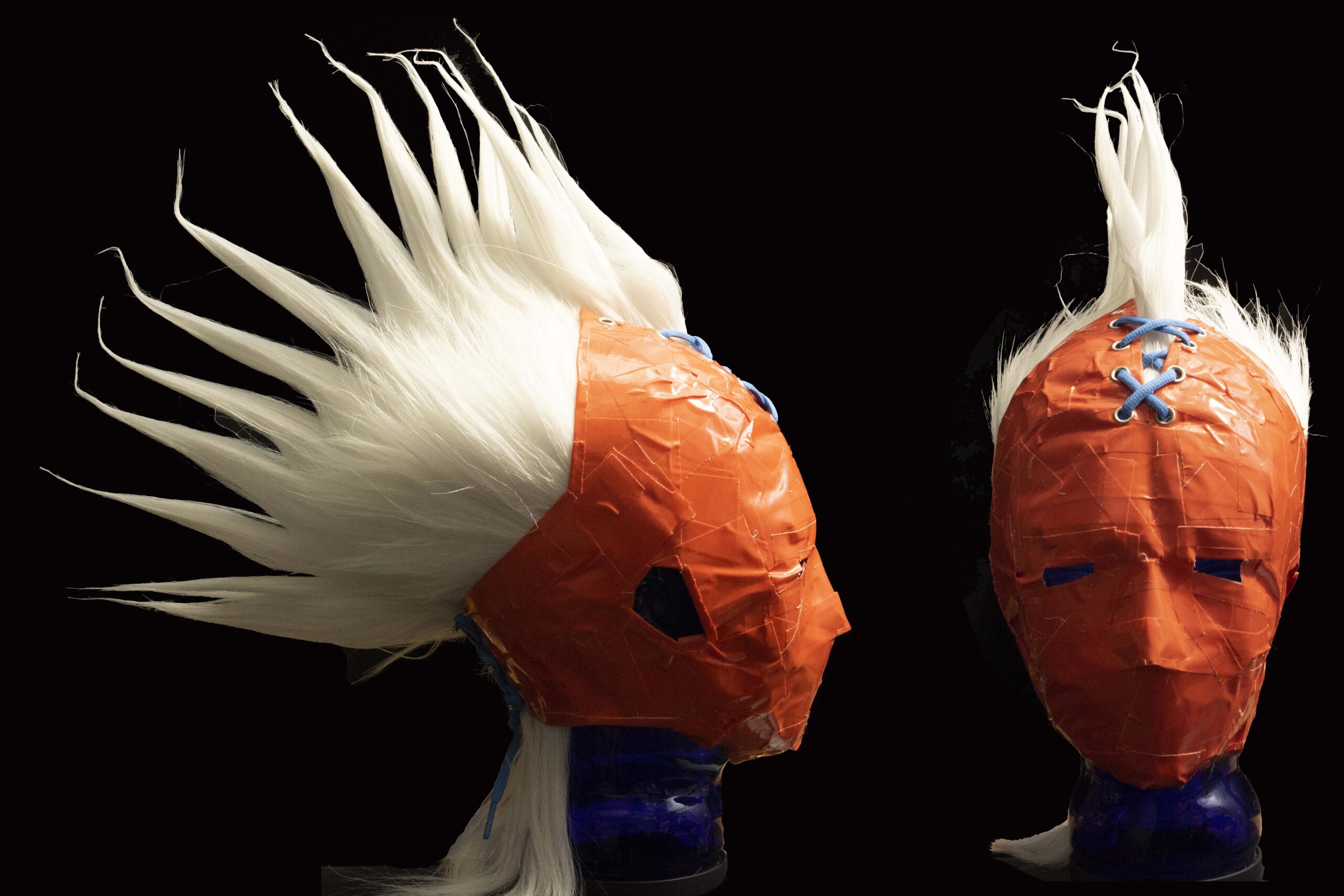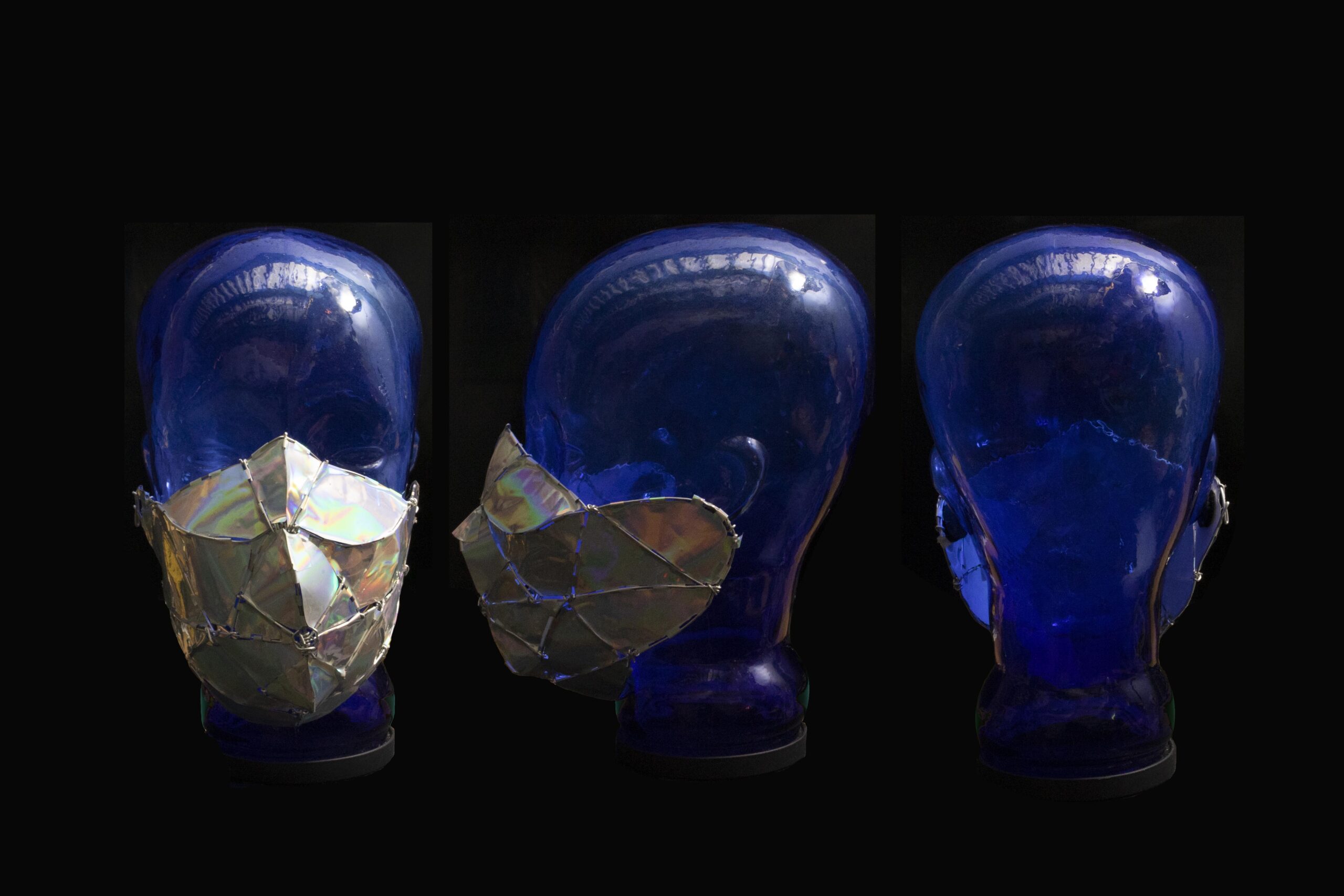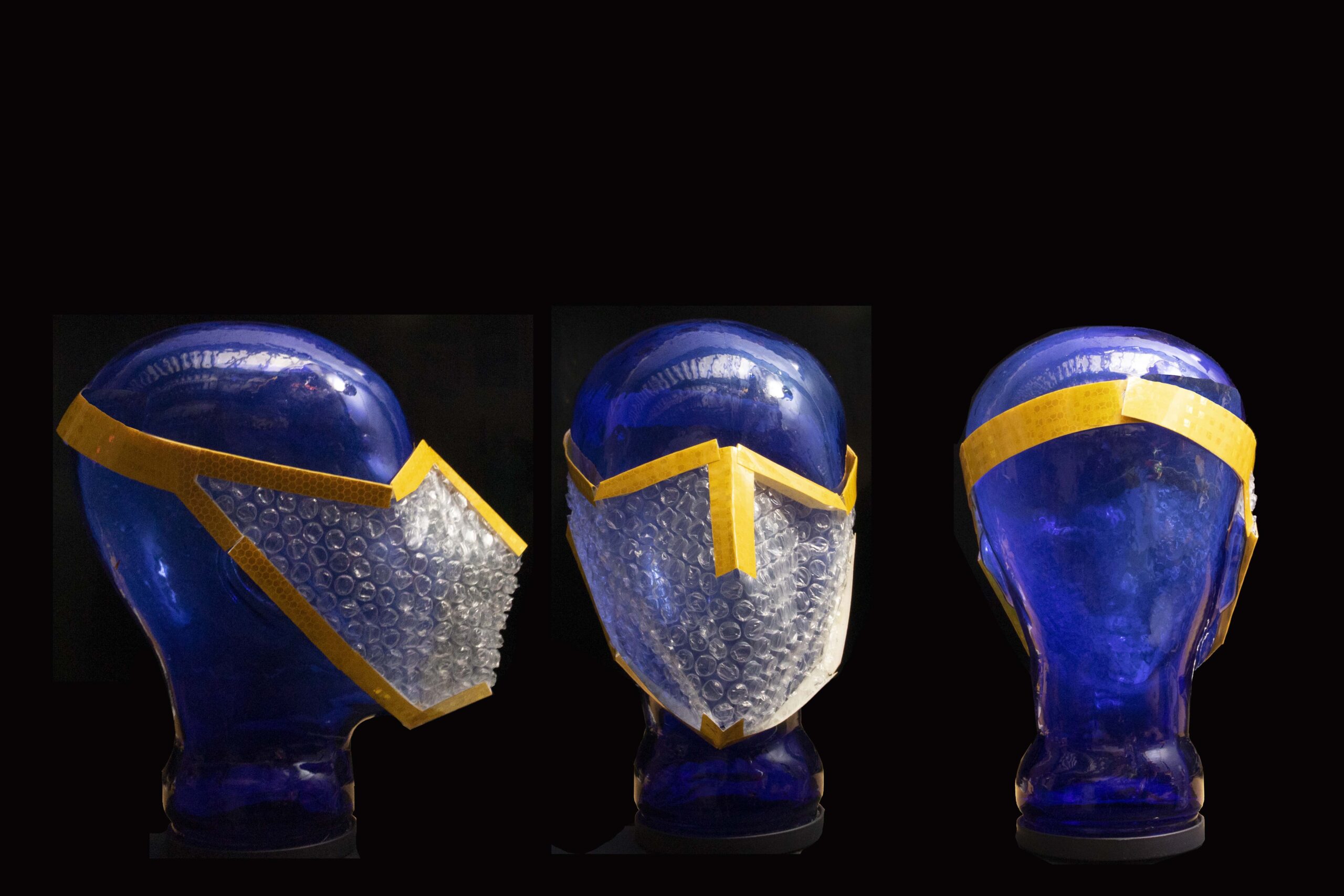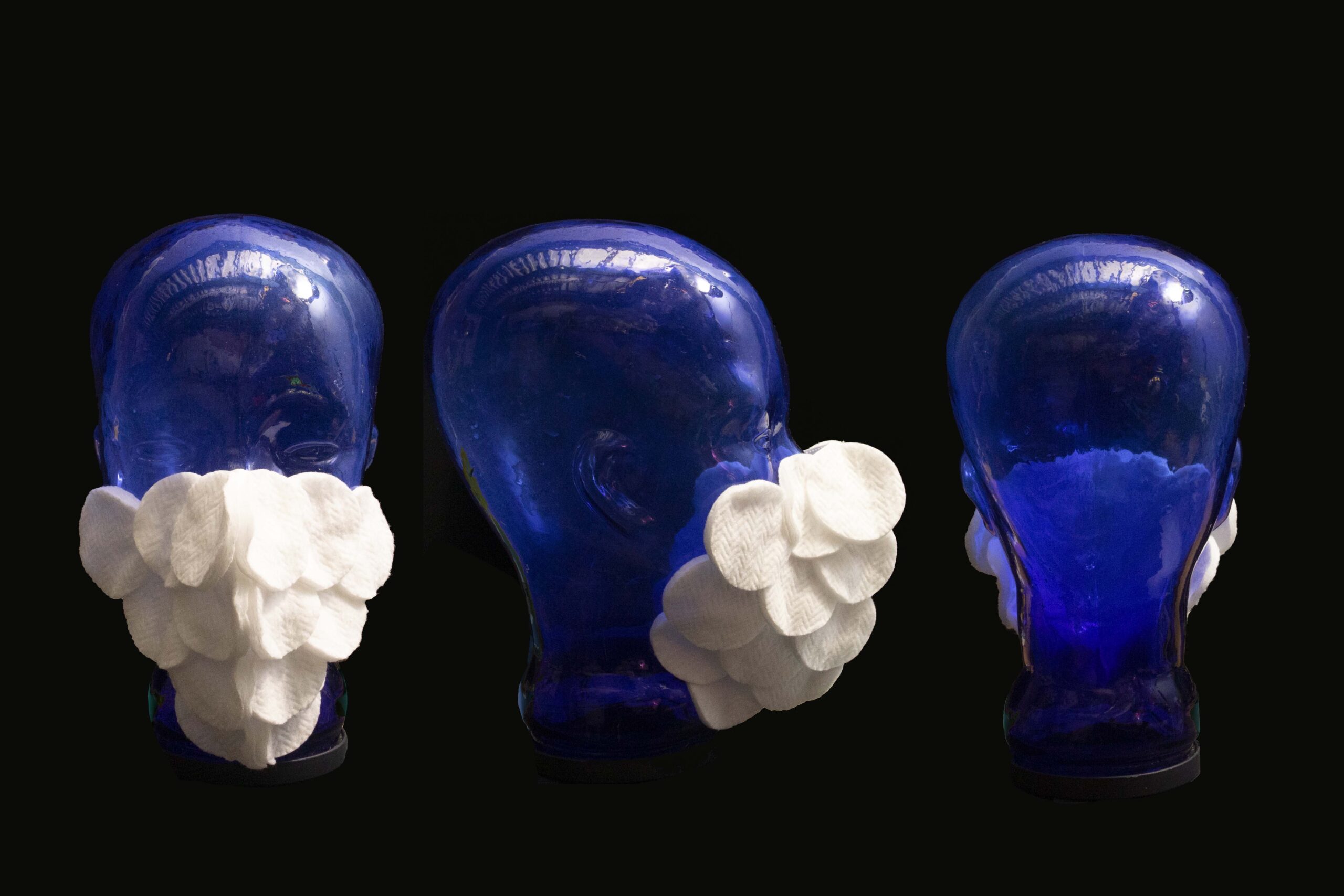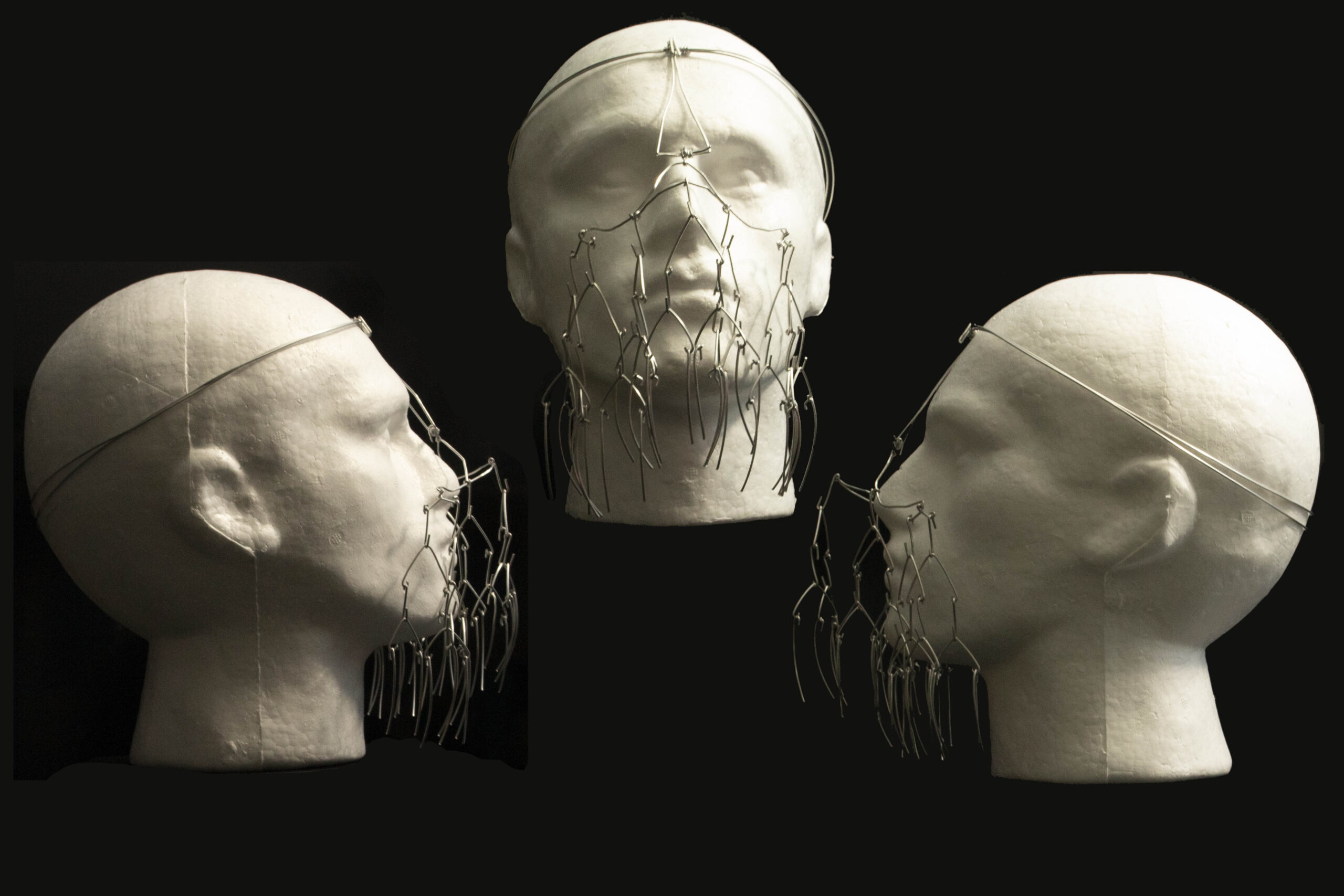The Year of the Mask, 2020
Armando Garma Fernandez
Mask 1 – Orange Duck tape, metal grommets, 18 gauge aluminum wire, white wig.
Mask 2 – 18 gauge aluminum wire, iridescent vinyl sheets.
Mask 3 – Bubble wrap, reflective tape, velcro.
Mask 4 – Cotton rounds, N95 mask.
Mask 5 – 18 gauge aluminum wire.
The Year of the Mask is a continuation of an earlier piece about the collective experience that has been the year 2020. Air has played an overarching theme in my work for 2020. While my earlier work (not shown) dealt with access to air, the Black Lives Matter movement and police brutality, these pieces deal with the politicization and commercialization to a global health issue which is the response to the COVID 19 pandemic.
The Year of the Mask is my response to what I see happening in American culture since the pandemic took hold in early 2020. These five masks range from the extreme in protection, to the extreme in nonchalance, from the obviously home-made, to the commercialized sophistication of pandemic chic. The situation in the United States has become so polarized that instead of containing a health crisis via the complete cooperation of an informed, unified, collective populace we have an ongoing debate on the veracity of science. Our country is currently a place where instead of wearing a mask that could save people, other people, the act of wearing a mask has been seen by many as an infringement on their individual’s rights forced upon them by the state. We lived through an election cycle where mask wearing was turned by the incumbent into a political dividing symbol to scrounge up votes.
The Year of the Mask is a study on what it means to wear a mask in the year 2020. Some see wearing a functional, filtering masks as a responsible act to safeguard their lives and the lives of others and even take this as an opportunity to express themselves. Others see the mask as an opportunity to flaunt their ability to do the absolute minimum to appear to comply with the law.
The Year of the Mask is as much about creativity as it is about apathy, disinformation, and how the machine of consumerism was one of the first to jump forward and capitalize on the need for masks and quickly turned it into a status symbol.
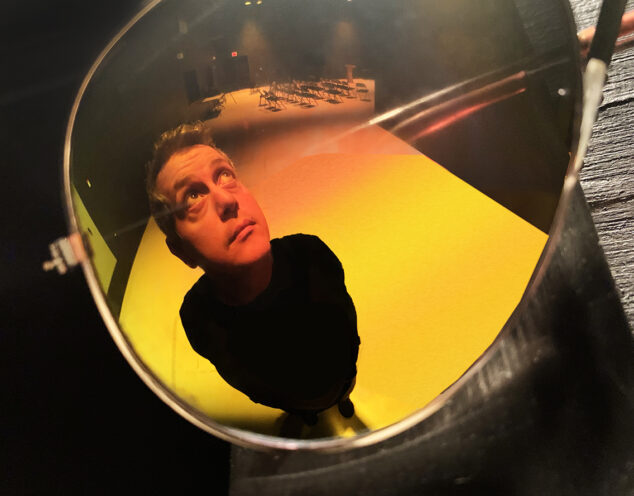
About Armando
Armando was born in Mexico City and has spent his life between Mexico, New York, Maine and the American South. He has a BFA in painting and photography as well as a BArch in architecture. Prior to moving to Maine he worked as an architect in New York as well as a swimming instructor. He now lives in Old Town with his wife and daughter and is very happy to call Maine home.

